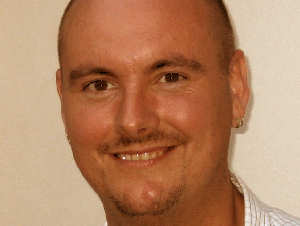Putting creation myths up against real science
 Those who wish to put creation myths up against real science are making a mistake, argues James Knight, in his latest Network Norfolk column.
Those who wish to put creation myths up against real science are making a mistake, argues James Knight, in his latest Network Norfolk column.
Every civilisation has its own creation myths - the Christians have Genesis, but look around the world and you'll see a different variation of human creation from the divine powers - the other monotheistic religions are at variance with Genesis. The Hindus have their own mythical creation account, the aboriginals' myth differ from those of the Orientals, the Eastern Africans myths differ from those of the Western Africans, and so forth.
A fairly obvious corollary follows. If you come from India you will likely subscribe to a different creation myth than a man from Thailand; if you come from Zambia you will likely subscribe to a different creation myth than an aboriginal from Australia. Quite naturally, the myth that is true to you will be the one to which your culture most heavily leans. These are the mythical accounts - but first off, notice I said 'mythical', I didn't say 'untrue'.
Now, let's take the scientific account of how all living organisms came about - through abiogenesis, and through evolution by natural selection. Here the picture would be different to the one above; if you were to ask a biologist or anthropologist in any one of those countries above, he would have more or less the same view of abiogenesis and evolution by natural selection as you do.
Because evolution is true in the sense of being empirically and factually true, its truth looks the same from wherever one is in the world. That is to say, the history of abiogenesis and the common ancestry that has seen life spread throughout the globe is the same truth for everyone. And unlike the culturally relative revelations behind the nuanced creation myths, scientists around the world who are studying and testing life on this planet will reach more or less the same conclusions, whether they are in Canada, Chile or China.
Those who wish to put the creation myths up against real science are making a mistake, and here's why. The creation myths are telling a truth, but a different kind of truth to the kind of empirical truths we can test in the lab or out in the wild. The truths of the creation myths are truths about mankind's propensity for broad imagination, and expressions of a deep longing that is never quite made manifest in the empirical studies of man. One may very well refer to it as a hunger for God, or a tapping into the hope that a powerful, transcendent God would come into intimate contact with mankind - perhaps even to repair the damages made by mankind's badness and irresponsibility.

No one, in my opinion, has covered the 'myth' subject better than
C.S Lewis - myths and mediaeval literature are his specialist subjects, and in his essay "
Myth Became Fact" from the larger body of work called
God in the Dock, Lewis has a wonderful passage:
"Now as myth transcends thought, Incarnation transcends myth. The heart of Christianity is a myth which is also a fact. The old myth of the Dying God, without ceasing to be myth comes down from the heaven of legend and imagination to the earth of history. It happens - at a particular date, in a particular place, followed by definable historical consequences. We pass from a Balder or an Osiris, dying nobody knows when or where, to a historical Person crucified (it is all in order) under Pontius Pilate. By becoming fact it does not cease to be myth: that is the miracle."
This has long been one of the best responses to the charge that Christianity is merely another version of the ancient Eastern, Babylonian, Persian, Roman, Greek and Egyptian myths. What C.S Lewis is saying is that Christianity is the fulfillment of all previous mythological religions. Yes, it is a myth, but it is a myth that is also a fact.
"Myth in general is . . . at its best, a real though unfocused gleam of Divine truth falling on human imagination."
It is quite a bold way of thinking - that all of mankind's religious and philosophical precipitations have interrelation with the truth of the Incarnation, and that myths aren’t rivals to facts, but instead truths that underwrite the whole of creation.
Obviously this is not the sort of fact that can be tested in the way that empirical science is tested, but that is not the point. The really profound truth is this; there is a clear reason why so many independent cultures came up with their own creation stories – it is because we are primed to assent towards these powerful narratives that underwrite the human story; Divinity, incarnation, birth, justice, mercy, love, grace, redemption, death, resurrection, re-birth – they inhabit so much of our imaginative thinking, and they are so much a preoccupation in our deepest longings, it is no surprise that so many have thought them to be at the very centre of what the story of mankind has been about all along.
Try not to catch yourself thinking that Biblical myths are to be confused with legends or fairy stories or, worse, falsehoods – that is not what myths are; they are extra-worldly or metaphysical or divine truths told in worldly form. That is why all the great writers and storytellers and mythmakers never stray very far from the Christian truths.
or God.
The views carried here are those of the author, not of Network Norwich and Norfolk, and are intended to stimulate constructive debate between website users. We welcome your thoughts and comments, posted below, upon the ideas expressed here. You can also contact the author direct at james.knight@norfolk.gov.uk
James is a Christian writer and local government officer based in Norwich. You can access his current collections of columns here
Meanwhile, if you want to find out more about Christianity, visit: www.rejesus.co.uk